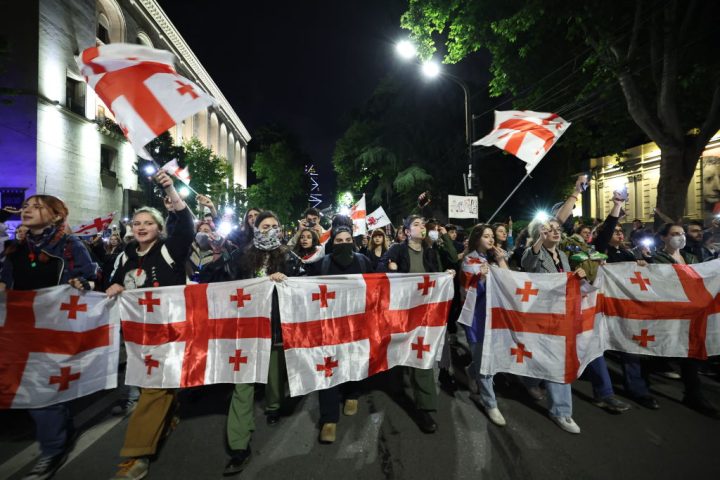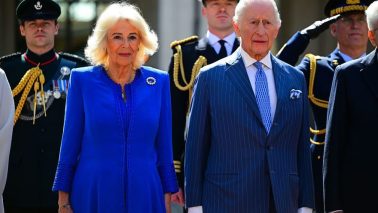Following the introduction this Tuesday of Georgia’s notorious ‘foreign agent’ law by the ruling party Georgian Dream, there has been widespread popular protest in the capital Tbilisi. The law, proposed last year but postponed in the face of public resistance, demands that any non-governmental organisation receiving more than 20 per cent of its funding from abroad must label itself an ‘agent of foreign influence’ or face fines and even imprisonment.
While the government claims it’s simply a practical bid to create transparency in Georgian politics, critics, who call it the ‘Russian Law’, feel it’s a leap towards greater union with the Kremlin. They fear the legislation will simply be abused, as in Russia, to silence dissent and persecute critics of the government. It also puts Georgia’s future membership of the EU into grave doubt, with the independently elected President Salome Zurabishvili – a long-term Europhile and thorn in the side of the government – declaring that nothing less than ‘Georgia’s survival is at stake today’.
What good is peaceful protest against all the resources of a Kremlin-backed state?
Cue, therefore, the scenes we have witnessed this week: alarmingly unfettered brawls between delegates in Georgia’s parliament, thousands (or even hundreds of thousands) of Georgians out on the streets demonstrating against the government, and an army of balaclavaed and helmeted riot police out in full force to oppose them.

Get Britain's best politics newsletters
Register to get The Spectator's insight and opinion straight to your inbox. You can then read two free articles each week.
Already a subscriber? Log in






Comments
Join the debate for just £1 a month
Be part of the conversation with other Spectator readers by getting your first three months for £3.
UNLOCK ACCESS Just £1 a monthAlready a subscriber? Log in